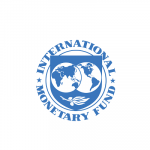Islamabad: The United States has imposed a 19% tariff on Pakistani exports under a new executive order signed by President Donald Trump, significantly lower than the earlier proposed rate of 29%. The new tariffs are part of broader trade measures affecting dozens of countries and are aimed at addressing what the US administration describes as persistent trade imbalances.
The 19% duty applies to a wide range of Pakistani goods, including textiles and apparel, which are among Pakistan’s top exports to the US. This decision comes as part of an executive order issued Thursday, under which Washington has levied tariffs of up to 41% on imports from multiple nations. Among those affected are Canada (35%), Brazil (50%), India (25%), Taiwan (20%), Switzerland (39%), and Bangladesh, Vietnam, and Sri Lanka (each at 20%).
According to the order, the measures are in response to what the US president termed “unusual and extraordinary threats” to national security and economic stability due to longstanding trade deficits and a lack of reciprocity in bilateral trade relationships.
Read: Pakistan’s exports to US cross USD 6 bn in FY25
For Pakistan, the final rate of 19% is seen as a partial diplomatic success. The country had initially faced the risk of a 29% tariff after early discussions in April, but negotiations helped lower the rate. Analysts say that while the tariff is still a challenge for exporters, it is relatively moderate compared to the duties imposed on regional competitors. In particular, the lower rate may help Pakistani products, especially textiles, remain competitive in the US market.
In 2024, Pakistan reported a trade surplus of around USD 3 billion with the US, primarily driven by textile and garment exports, making the US its single largest export destination. The new tariff structure could impact this surplus depending on how buyers in the US market respond to the increased cost of Pakistani imports.
The announcement of the revised tariff rate also follows a significant development in US-Pakistan relations. A day earlier, both countries agreed to initiate cooperation on oil exploration in Pakistan. President Trump stated that the US would assist Pakistan in developing its oil reserves and would soon select an American company to lead the initiative.
Finance Minister Muhammad Aurangzeb described the development as part of a broader economic and strategic partnership. He emphasized that Pakistan is seeking to balance trade and investment to promote long-term stability and growth.
Read: US investors urged to tap into Pak’s mineral wealth
Despite the challenges posed by the tariff, officials remain optimistic that continued diplomatic engagement and sectoral diversification will help mitigate the impact on key export industries.








